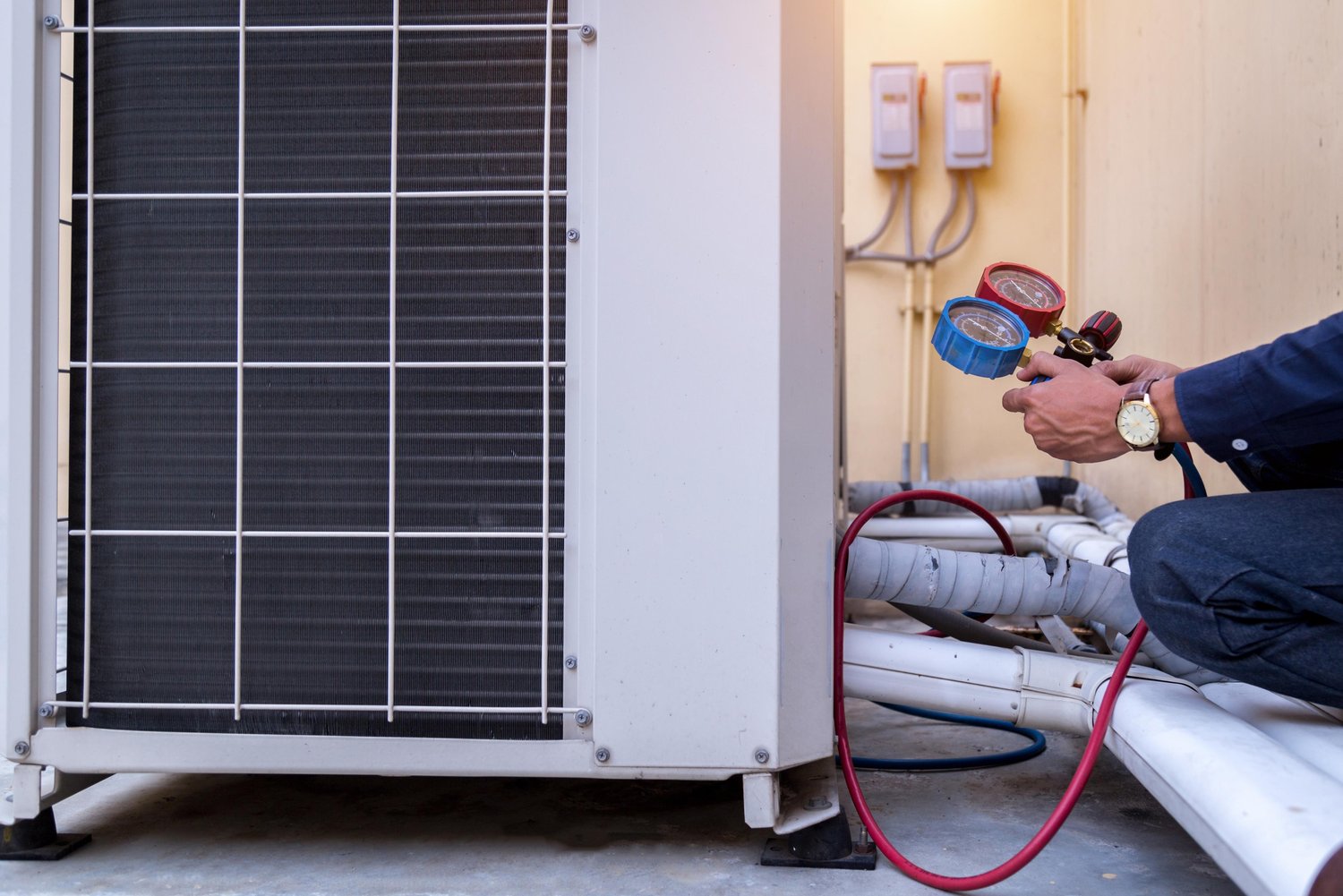Understanding heat pump technology
Heat pumps are energy-efficient devices that transfer heat from one location to another. These systems can provide both heating and cooling for homes and businesses. Heat pumps https://onninen.pl/en/products/Heat-pumps work by extracting heat from the air, ground, or water sources. They operate on electricity and can be up to 400% efficient in ideal conditions. This technology has gained popularity due to its eco-friendly nature and potential for significant energy savings.
There are several types of heat pumps available in the market. Each type has its unique advantages and applications. The most common varieties include air source, ground source, and water source heat pumps. These systems can be used for space heating, cooling, and water heating purposes. Heat pumps are suitable for various climates, though their efficiency may vary depending on the local temperature range.
The installation of a heat pump requires professional expertise. A qualified technician will assess your property’s heating and cooling needs. They will also consider factors such as insulation, ductwork, and existing HVAC systems. Proper sizing and installation are crucial for optimal performance and energy savings. Regular maintenance can extend the lifespan of a heat pump, which typically ranges from 15 to 20 years.
Advantages of air source heat pumps
Air source heat pumps are the most commonly installed type of heat pump. These systems extract heat from the outside air, even in cold temperatures. Air source heat pumps https://onninen.pl/en/products/Heat-pumps/Air-source-heat-pumps are relatively easy to install and require minimal space. They can reduce heating costs by up to 50% compared to electric resistance heating. In moderate climates, these pumps can provide efficient heating and cooling year-round.
One significant advantage of air source heat pumps is their versatility. They can be used in various configurations, including ducted and ductless systems. Ductless mini-split systems are particularly popular for retrofitting older homes or heating specific zones. These units can provide both heating and cooling, eliminating the need for separate systems. Air source heat pumps also have lower installation costs compared to ground source systems.
Modern air source heat pumps have improved significantly in cold weather performance. Some models can operate efficiently at temperatures as low as -15°F (-26°C). They also offer advanced features such as variable-speed compressors and smart controls. These innovations help optimize energy use and maintain consistent indoor temperatures. Air source heat pumps can also be combined with solar panels for even greater energy savings.
Benefits of ground source heat pumps
Ground source heat pumps, also known as geothermal heat pumps, extract heat from the earth. These systems utilize the constant temperature of the ground below the frost line. Ground source heat pumps https://onninen.pl/en/products/Heat-pumps/Ground-source-heat-pumps are highly efficient and can reduce energy consumption by up to 70%. They operate quietly and have a long lifespan, often exceeding 25 years for indoor components.
There are two main types of ground source heat pump systems: closed-loop and open-loop. Closed-loop systems circulate a heat-transfer fluid through buried pipes. Open-loop systems use groundwater directly as a heat source. The choice between these depends on factors such as available land, soil conditions, and local regulations. Both types can provide consistent heating and cooling regardless of outdoor air temperature.
While initial installation costs are higher, ground source heat pumps offer significant long-term savings. They require minimal maintenance and have lower operating costs compared to conventional HVAC systems. These pumps can also be used for water heating, further increasing their efficiency. In some regions, government incentives and rebates are available to offset installation costs. Ground source heat pumps are particularly beneficial for large buildings with high heating and cooling demands.
Exploring other heat pump options
Besides air and ground source heat pumps, there are other specialized types available. Water source heat pumps extract heat from bodies of water such as lakes or wells. Absorption heat pumps use heat as their energy source instead of electricity. Other heat pumps https://onninen.pl/en/products/Heat-pumps/Other-heat-pumps include hybrid systems that combine heat pump technology with conventional heating methods.
Hybrid heat pumps, also called dual-fuel systems, pair an electric heat pump with a gas furnace. These systems automatically switch between the two based on efficiency and outdoor temperature. Hybrid systems offer flexibility and can be particularly effective in regions with varying climates. They provide the energy efficiency of a heat pump with the reliability of a backup gas furnace during extreme cold.
For commercial applications, Variable Refrigerant Flow (VRF) systems are gaining popularity. These advanced heat pumps can provide simultaneous heating and cooling to different zones. VRF systems are highly efficient and offer precise temperature control. They are ideal for large buildings with diverse heating and cooling needs, such as hotels or office complexes. VRF technology can achieve energy savings of up to 55% compared to traditional HVAC systems.
Factors to consider when choosing a heat pump
Selecting the right heat pump involves considering several factors. Climate is a crucial element, as it affects the system’s efficiency and performance. In colder regions, cold climate heat pumps or hybrid systems may be more suitable. The size of your property and its insulation levels also play a significant role in determining the appropriate heat pump capacity.
Energy efficiency ratings are important indicators of a heat pump’s performance. Look for the Seasonal Energy Efficiency Ratio (SEER) for cooling and Heating Seasonal Performance Factor (HSPF) for heating. Higher ratings indicate better efficiency. For example, a high-efficiency air source heat pump might have a SEER rating of 18 and an HSPF of 10. Ground source heat pumps typically have even higher efficiency ratings.
Consider the long-term costs and savings when choosing a heat pump. While some systems have higher upfront costs, they may offer greater energy savings over time. Factor in installation costs, potential energy savings, and available incentives. Consult with a qualified HVAC professional to assess your specific needs and recommend the most suitable heat pump solution. Proper sizing and installation are crucial for optimal performance and energy efficiency.





